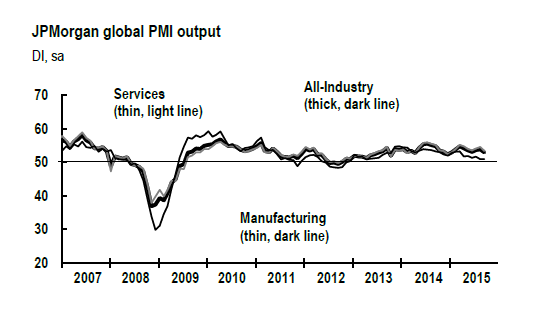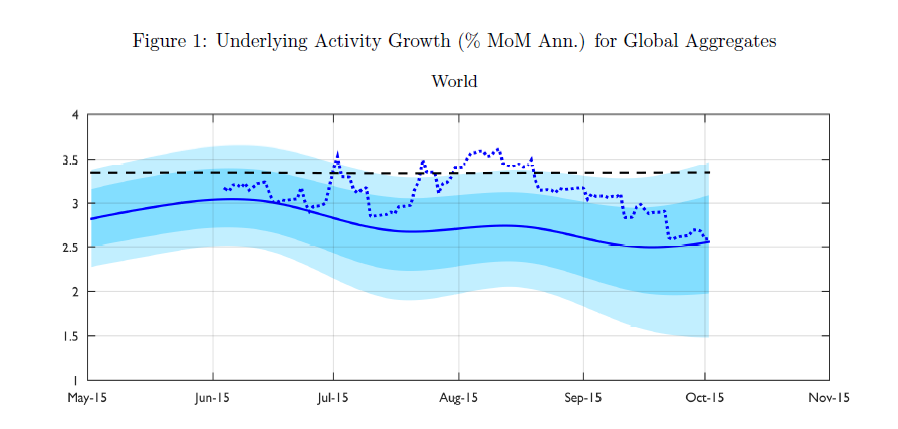If it wasn’t already obvious, two updates this week warn that a slowdown in global economic growth is underway. It’s still debatable if the weaker trend will continue and unleash a new worldwide recession. The US economy is certainly vulnerable, but it’s premature to say that an NBER-defined contraction is fate for the world’s biggest economy. But one thing is clear: macro risk has ticked higher, as new reports from Markit Economics and Fulcrum Asset Management remind.
Let’s start with Markit’s purchasing managers’ index (PMI) that spans the globe for the manufacturing and services sectors. Monday’s update for September shows that global economic growth dipped to a nine-month low. The JP Morgan Global All-Industry Output Index fell to 52.8 last month from 53.9. The PMI is still above the neutral 50 mark, but growth’s edge continues to narrow.

“The latest PMI surveys point to a waning trend in global economic growth at the end of the third quarter, as rates of expansion softened in both the manufacturing and service sectors,” says JP Morgan’s David Hensley. “The disparity between emerging and developed nations also remains, with the former registering a contraction while the latter saw growth hold up well in comparison despite slowing slightly over the month.”
Meanwhile, Fulcrum’s Gavyn Davies this week advised that “our latest ‘nowcasts’ for global economic activity have for the first time identified a clear slowdown in growth since mid-2015, with both emerging markets and advanced economies now growing more slowly.”

Davies goes on to explain that
The dominant contractionary force in the world economy is a commodity shock, which is not exactly the same thing as a China shock, though the two are related. These shocks are now starting to impact activity growth in the US, which has also slowed markedly since mid year, though some of this is probably due to a temporary inventory downturn. So far, the euro area seems to have been fairly immune to the global slowdown.












Leave A Comment